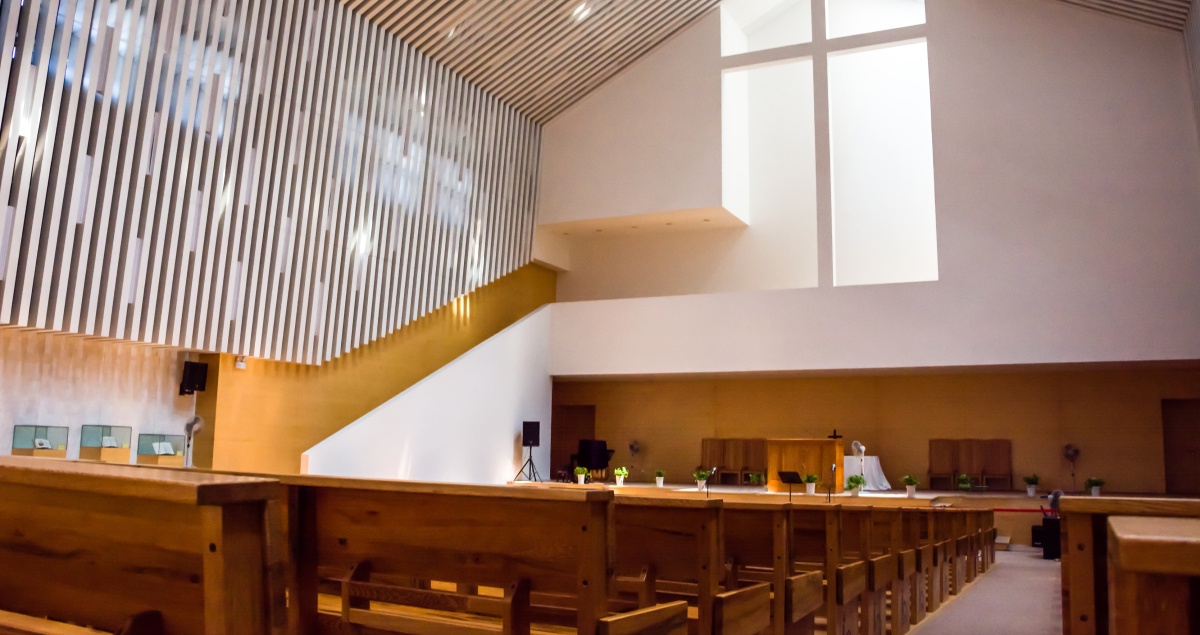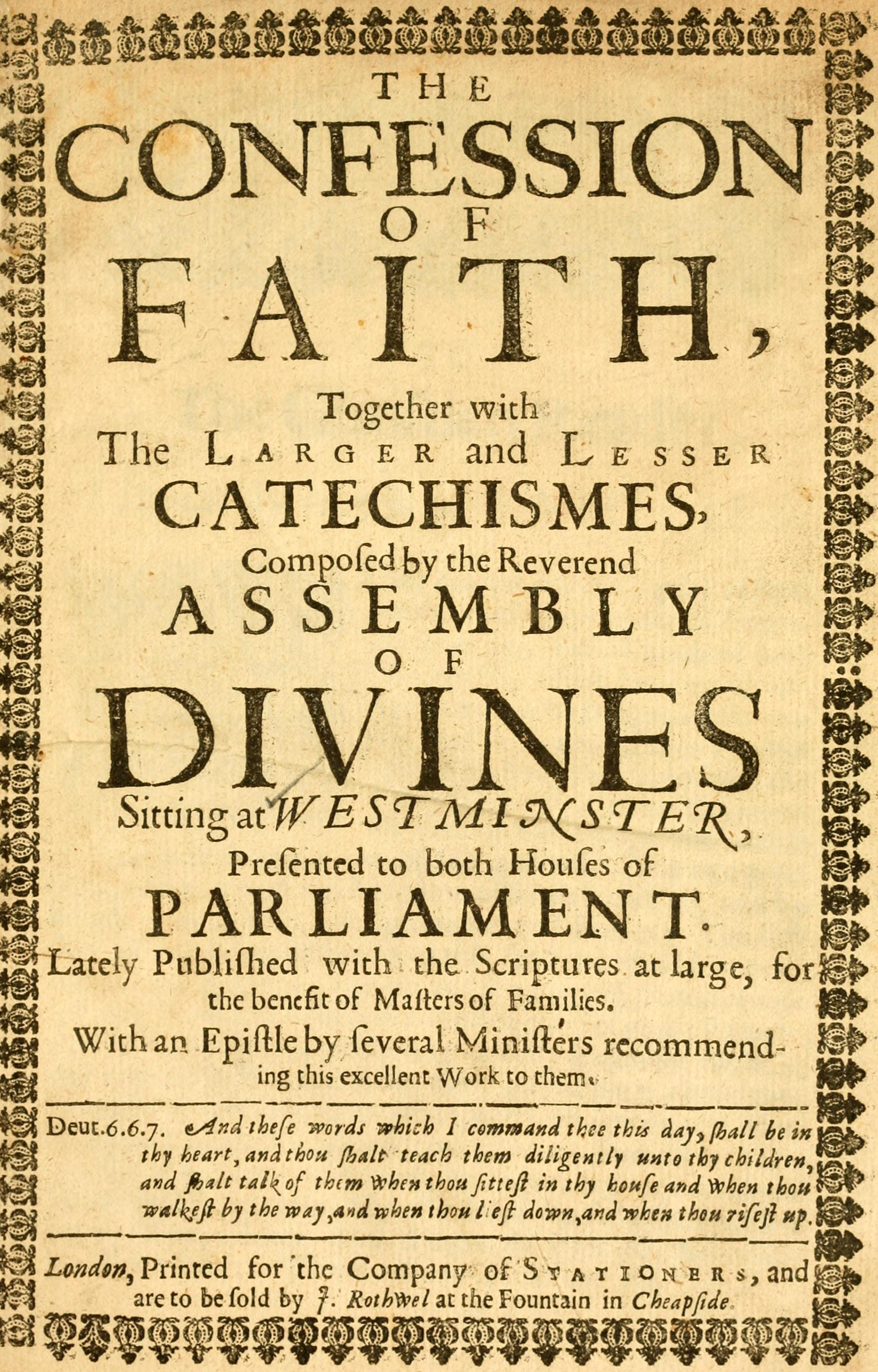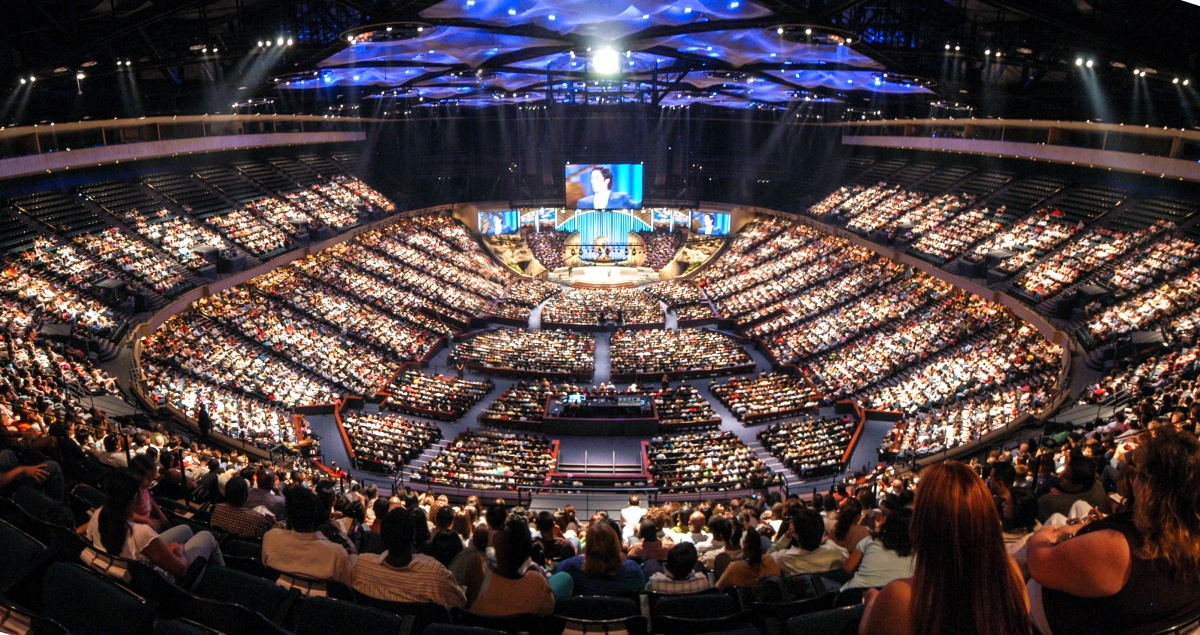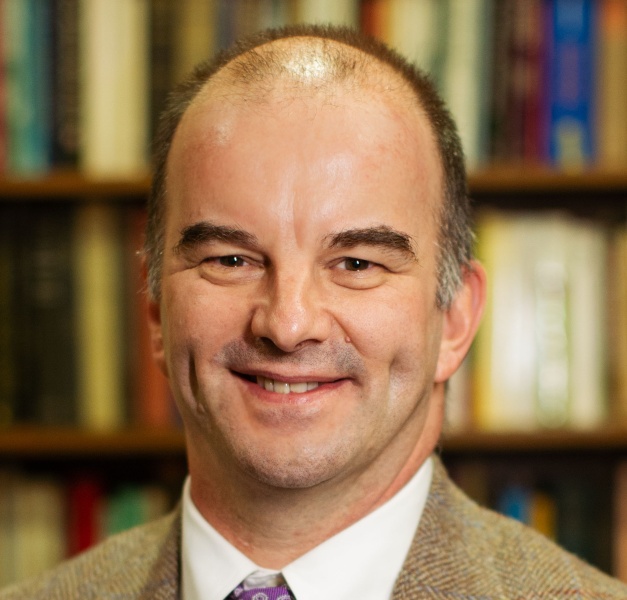It is clear to even the most casual observer of the religious world in America that churches today face significant challenges to their public reputation, challenges that have undermined everything from their capacity to speak with authority in the public square to their ability to command loyalty from their own members. Is there any hope that this situation may be reversed, or are the churches in the West now doomed to slow but inexorable decline? As Matthew Arnold likened the sea of faith receding in Victorian society to the long, melancholy groan of the tide withdrawing along Dover Beach, are we merely to resign ourselves to a retreat into oblivion that might at best have some scrap of dignity but at worst merely continue the embarrassing chaos of the past two decades?
To regain its reputation, authority, and influence, the church in the world must first be faithful to the gospel message in teaching and practice. But it must also be the place where awe and wonder before a holy God can still captivate even the nonbeliever.
To answer that question, it is first useful to outline the nature of the problems that have brought traditional Christian churches to this moment. There are, of course, the obvious matters of hypocrisy and moral corruption. The child abuse and financial scandals within the Roman Catholic Church, combined with the institutionalized cover-ups of the same, are the most infamous examples of such. Yet Protestantism, too, has its equivalents and the only reason it has perhaps proved less notorious in the public imagination is due to its fragmentation, rendering the scandals more piecemeal and less visible on the national scale. For both expressions of Christianity, however, such corruption renders any public statement that claims the moral high ground on a wide variety of issues implausible, if not downright hypocritical, in the eyes of the public and indeed many Christians.
Beyond the scandals, there is the general tilt against traditional institutional authority. This does not merely affect churches, as attitudes toward political institutions indicate. But it does hit churches particularly hard because, unlike the Senate, for example, they are not necessary for society to function. Churches have a voluntary dimension that has always meant that their authority is highly attenuated. Freedom of religion is a very good thing, but it does shift power toward the congregant, who can easily behave like a customer, and away from the clergy, who may find that they have to behave more like salespeople to attract and keep their flock. And in a world where institutional authority in general is seen as less and less plausible, today even the attenuated church power of the recent past starts to look exceptionally ambitious.
To all this we might add the role of technology. The invention of the automobile might be said to have been the real shattering blow to church authority, as it allowed individuals easy access to an even greater range of churches. Now the internet has more or less abolished geography in its entirety. A person in Florida can, if they wish, be part of a church service in Rome as long as it is streamed on the web. And this can be at a time of the person’s choosing. We might say that technology in the form of the internet has not only further eroded institutional power in practice, but it has also reshaped how we imagine our relationship to the church. The customer now really can be king over space and time. And the time of COVID served to supercharge this because most, if not all, Christians had to worship online for a time, and many priests and pastors have seen their returning congregations diminished as a result.
In light of these problems, how might the church recover its integrity and authority?
The first thing to note is that credibility with the world outside the church is not something to be desired in an unqualified manner. The New Testament makes it clear that the church is not a continuous part of the wider culture. The message of the cross is foolishness to Greeks and an offense to Jews, as Paul argues in 1 Corinthians. That sets limits to the church’s plausibility in the wider culture and indicates that a church that is not at some level offensive to that wider culture is likely not articulating the gospel in a correct manner. Christians are, to use Peter’s language, sojourners and exiles or, in the cliche of earlier generations of believers, in the world but not of it. This is not an excuse for gratuitous offense or implausibility, but it is a reminder that being repudiated by the secular world is not necessarily a sign that the church is at fault.

This is particularly true today. For many centuries, the terms of recognition, or membership, in civic society have been broadly consistent with the terms of recognition in the church because both shared the same broad moral vision. For example, in the year 1900, while Protestants, Catholics, Jews, and atheists disagreed over significant religious issues, most were in agreement over, say, the fact that marriage should be between one man and one woman, and that for life except in exceptional circumstances. And when the moral vision of society as a whole is shared broadly, religious differences can then be happily assigned to the pre-political realm, where they will cause little or no broader social tension.
This is not the situation today. The broad moral vision of America in 1900 has crumbled and been replaced by competing moral visions that have created a highly contested public square. Further, the politics has become increasingly psychologized in response to the rise of the therapeutic self for whom inner feelings are central to well-being. In this new world, the failure to affirm particular identities is seen as an act of oppression and even at times described using the language of violence. Combine this with the rise of social media, whereby all of life can be performed in public, and we have a world that has erased the boundary between public and private and also abolished the pre-political realm.
That many churches in the United States are unaccustomed to lamentation might be a sign that they have become too comfortable in the culture and thus ill-prepared for the reality now confronting us.
This new situation makes personal religious convictions a matter of heated public interest. Now to hold to the traditional view of Christian marriage is to run afoul of one of the terms of recognition in secular society, because in doing so the Christian fails to affirm the legitimacy of an identity and a relationship that said society has already deemed legitimate. The Christian’s belief looks like bigotry, and there is no context in which holding such a view is deemed warranted or permissible. Christians are faced with a situation that has perhaps not been seen widely in the West since the fourth century: To be both a good church member and a good citizen has become increasingly difficult. Difficult choices will have to be made in the coming years.
Two things now seem obvious. First, the church will become smaller. We have already witnessed this over the past few decades, and COVID has served merely to accelerate the process. As church membership becomes more costly, the decline will likely continue for some time. Second, the church will lose even more credibility in the wider culture because it will look increasingly bigoted and detached from what society regards as reality. This is not a cause for rejoicing, but neither is it reason for despair. It is simply the cost it pays for fidelity in the world in which she—and we—now find ourselves.
Given that this wider social context severely restricts the possibility of the church regaining credibility, the church’s primary task is to regain credibility with regard to its own creed, code, and cult relative to its own constituency. The clergy need to demonstrate to congregants, and congregants need to demonstrate to each other, that they take the church’s own teaching, its own morality, and its own worship seriously.
What might this look like? Regarding teaching, here the differences between Catholic, Protestant, and Orthodox become significant, as the creeds of each, along with the practical emphases that arise from these, are different in key ways. Catholicism and Orthodoxy will inevitably have a sacramental focus, while Protestantism will likely emphasize preaching and proclamation. Yet even as these diverse theologies manifest themselves in diverse practices, I would suggest that both Catholicism and Orthodoxy (and many Protestants!) need to learn from the traditional Protestant emphasis on preaching and catechesis. Given the many challenges now faced by believers in everyday life, Christians need to be taught the whole counsel of God so they can think through these challenges carefully and virtuously in a manner that enables them to respond. For example, if a transgender colleague demands that co-workers acknowledge their chosen gender identity, how should the Christian respond? Regular Sunday churchgoing might be a regular part of someone’s devotional life, but only knowledge of the Bible’s inviolable and enduring teaching on man and woman will enable an individual to think through the issue. And that requires positive teaching of the whole counsel of God. So one step toward solidifying the church in the face of our culture of moral anarchy is to teach Christian people Christian truths.
Yet there is more to this than simply teaching the Christian faith. Part of the problem the church faces is that it lacks credibility even with its own people, not because its teachings are in themselves implausible, but because the church’s behavior relative to those teachings has made them implausible. As noted above, sex scandals make the church’s teaching about sex seem insubstantial because it appears as hypocrisy. In fact, the issue of credibility and plausibility is even deeper than that. The intuitions of the modern mind tilt against Christian teaching because of its assertion of external authority, an authority that insists that we are made in the image of God and that we have a given moral shape to which we must conform if we are to be truly human. To use Charles Taylor’s term, the modern social imaginary makes the notion of individual autonomy intuitive, and any assertion otherwise seems to lack plausibility. And Christians, too, are profoundly shaped by this.
In short, it is not just the church’s hypocrisy that makes Christian teaching hard to accept; it is also the moral imagination of the modern person that does so. And so the church has to address the problem at the level of the imagination, too. And both the hypocrisy and the imagination problem require that the church embody its teaching in the code by which it lives.
This can take numerous forms. In ethical teaching, the church needs to be consistent in how it applies Christian principles. Thus, for example, to accept no-fault divorce but to object to gay marriage is incoherent. The former teaches people that marriage is a sentimental bond for the mutual happiness of the contracting parties, to be dissolved when one or both partners decides that the arrangement is no longer providing that. That is essentially the same logic as the latter and is a clear contradiction of the Bible’s teaching. Such inconsistency is hypocrisy. And yet the church’s teaching on marriage must also capture the imagination. It is not enough to be consistent on the issue; the church must encourage and cultivate strong, beautiful marriages that capture the imagination of its people.
This example points to one way in which the church can engage the broader culture. It must be a loving community. Christ himself pointed to love as a key apologetic tool when he declared that the love Christians have for one another would be the way people would know them as his disciples. Love has been eviscerated of meaningful content in the wider culture, with the statement “love is love” unwittingly indicating the reduction of the idea to vacuous rhetoric. It is here that the church has an obvious opportunity to build bridges. By being a community that cares for its own and extends that care to those outside, Christians can foster a social framework that provides a plausibility structure for Christian teaching.
This may look different in different places. Community life in a rural town or village is inevitably not the same as that in an urban setting. The key is that each congregation finds a way to be a loving community in the context in which it finds itself. Communities offer places to belong, and they shape our intuitive understanding of the world and our place within it. And at a time when traditional communities are breaking down and where the wafer-thin alternatives offered by the internet are leaving so many people feeling anxious and alienated, real community in real time and space with real embodied people has to be attractive. Our current state of social disintegration might actually be a first-class opportunity for the church to shine as a city on a hill. It is surely significant that the gift of hospitality is a New Testament qualification for eldership, for the church is to be characterized by precisely this virtue.

This is one reason why it would be unfortunate if lamentation were the only response we have to the increasing marginalization of the church. Lamentation is certainly appropriate and indeed a basic function of the fact that the church is always a church in exile this side of the eschaton. That many churches in the United States are unaccustomed to lamentation might be a sign that they have become too comfortable in the culture and thus ill-prepared for the reality now confronting us. Yet if all we do is lament, that is a missed opportunity. Marginal communities are typically strong communities, as Jews in medieval Europe and nonconformists in 18th- and 19th-century Britain and African Americans during segregation demonstrate. Marginality might be just the catalyst needed to make the smaller, leaner church that is merging into a truly cohesive and solid communal entity.
And yet the church is more than an institution that maintains a creed, more than a loving, nurturing community. It is also a worshiping body, and this cultic aspect must not be neglected. Indeed, if the battle for the modern mind is a battle of ideas but also of the imagination, then worship is key. With its various liturgical actions, involving proclamation and response, prayer and confession, words and music, and, of course, the sacraments, worship is something that grips the whole person and the whole congregation. As Christians participate in worship, so they are transformed, often imperceptibly and incrementally, in all ways, from the way they think to the way they relate to each other.
Further, if the worship service takes seriously the holiness of God and the power of God’s grace, it must inevitably infuse a sense of reverence, awe, and wonder into the participant, something that Paul declares should be evident even to a non-Christian who happens to wander into such a gathering. It should not be, as I recently heard someone describe the services at his own church, “a Coldplay concert followed by a TED talk.” This should also give pause for thought over online worship. Such might be necessary in extreme circumstances, as in the early stages of the COVID pandemic or for people unable to attend church in person for some serious reason, but it should neither be normative nor treated as an acceptable substitute for worship involving physical presence. The holiness of God—rather like the love of a community—cannot be effectively mediated via a screen.
Further, if the worship service takes seriously the holiness of God and the power of God’s grace, it must inevitably infuse a sense of reverence, awe, and wonder into the participant, something that Paul declares should be evident even to a non-Christian who happens to wander into such a gathering.
Now, worship is a controversial area, discussion of which often degenerates rapidly into acrimonious debates between those who favor traditional forms and those who opt for more contemporary styles. Yet whatever one’s tastes may be, it is vital that worship communicate an adult ethos and instill in people a sense of the seriousness of the undertaking. Worship should not be a function of the modern social imaginary, where authenticity is identified with self-expression. It should be a contradiction of that social imaginary, pressing the individual to find his or her true humanity in the corporate body of Christ.
Thus, for example, corporate singing in the worship service is of critical importance. In this action, the believer acts freely, singing the words and following the tune as an individual, intentional act. And yet in so doing, individuals do not so much express themselves in some autonomous way; rather, they become part of the whole and, in a sense, lose their individual identity. Our individual freedom and our corporate belonging are beautifully tied together without tension or difficulty. And that is in a sense a microcosm of the whole service: Individual believers find their true identity through participation in the corporate action of worship, addressed by God as part of his people and responding to him in like manner.

None of the above offers an easy solution to the church’s problem of credibility or authority. There is little doubt that, as far as the wider culture is concerned, the church’s reputation is seriously, maybe fatally, damaged. But the promise to the church—that the gates of hell shall not prevail against it—remains regardless of the corruption that infects its inner being and the opposition that comes from without. Yet the answer to the church’s problem in this age is the answer to the church’s problem in every age: faithfulness to the gospel message in teaching, practice, and worship, and to the fact that believers are made in the image of God, redeemed by the blood of his Son, and called to reflect his character to the world around. Accepting that faithfulness today will inevitably place the church at odds with the world and will likely cause a decline in numbers in the immediate future, it must press on, focusing on living consistently with its own teachings, being a community marked by love, and worshiping in a manner that befits a redeemed people before a holy God. Such a strategy might seem remarkably trite on paper, but simply because something is trite does not mean it is not true. Sometimes the simplest strategies are the correct ones.




